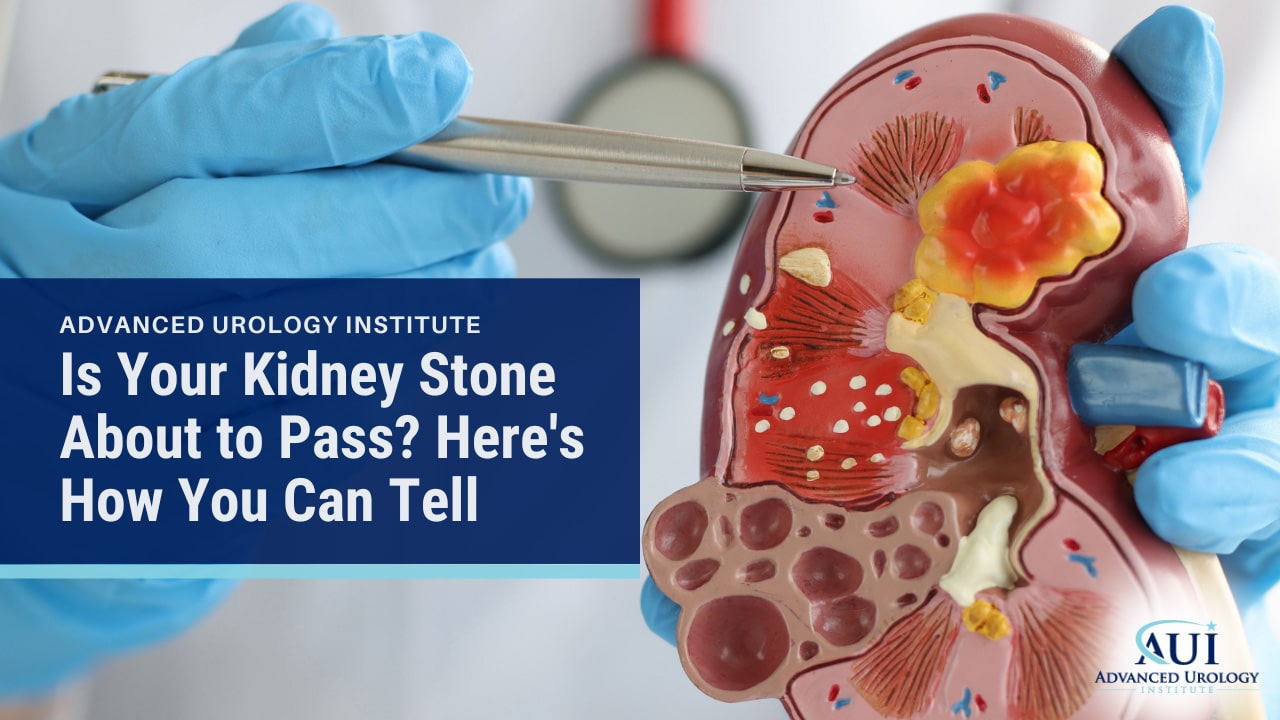Is Your Kidney Stone About to Pass? Here’s How You Can Tell
3 Key Takeaways:
- Symptoms of a kidney stone include sharp lower back or side pain, blood in the urine, frequent urination, and pain during urination.
- Factors such as the size, location, hydration, diet, anatomy, and genetics can influence the passage of kidney stones.
- Signs that indicate a kidney stone is about to pass include a decrease in pain intensity and changes in urine color. However, definitive confirmation should be done through medical methods such as imaging techniques and urine tests.
 Kidney stones are a common health issue, affecting around 1 in 10 Americans during their lifetime. These hardened deposits of minerals and salts form within your kidneys can cause severe pain when moving through the urinary tract. Understanding if a passing kidney stone is imminent is crucial to managing the discomfort and planning for prompt medical attention when necessary.
Kidney stones are a common health issue, affecting around 1 in 10 Americans during their lifetime. These hardened deposits of minerals and salts form within your kidneys can cause severe pain when moving through the urinary tract. Understanding if a passing kidney stone is imminent is crucial to managing the discomfort and planning for prompt medical attention when necessary.
Symptoms of a Kidney Stone
Those who have experienced kidney stones often describe the pain as excruciating. The most common symptoms include sharp pain in the lower back or sides, blood in the urine (hematuria), frequent urination, and pain during urination. The intensity and duration of these symptoms can vary significantly based on the stone’s size and location.
Factors Affecting Passage of Kidney Stones
Several factors can influence the passage of kidney stones. The stone’s size and location are primary determinants, with smaller stones generally passing more easily. Hydration and diet also play a crucial role as increased fluid intake can help move the stone along the urinary tract. Individual anatomy and genetics can also affect the likelihood and ease of passing a kidney stone.
Signs Indicating a Kidney Stone is About to Pass
As a kidney stone inches closer to the exit, the intensity of the pain may decrease. Additionally, changes in urine color, from a healthy clear to a dark or reddish hue, can be a telltale sign. It’s crucial to stay vigilant for these signs as they may signal the approaching passage of a kidney stone.
How to Confirm the Passage of a Kidney Stone
While certain symptoms can increasingly suggest a kidney stone is about to pass, definitive confirmation comes via medical methods. Imaging techniques such as ultrasounds or CT scans can visualize the stone, while urine tests can detect the presence of blood or other byproducts of the stone. For accurate diagnosis, it’s essential to consult a healthcare professional, preferably a skilled urologist.
Home Remedies to Facilitate the Passage of Kidney Stones
Increasing fluid intake and taking certain over-the-counter medications can help aid the passage of kidney stones while reducing discomfort. But be warned, self-treatment should never replace professional medical advice. Always consult a healthcare professional before starting any home remedies.
When to Seek Medical Attention
If the pain is unmanageable, there’s a fever, or if the stone doesn’t pass within a reasonable time, seek immediate medical help. A lodged kidney stone can lead to serious complications such as infections or kidney damage.
Conclusion
Recognizing the signs of a passing kidney stone and understanding the factors affecting its journey can bring some predictability to an otherwise painful process. Always heed your body’s signs, and don’t hesitate to seek help from healthcare professionals when needed.
Passing kidney stones is a delicate matter best handled by experts. At the Advanced Urology Institute, we’re the largest urology practice in Florida, bringing together a team of top urologists to assist in identifying and managing kidney stones. So the next time you are experiencing kidney stones, let us help guide you through, smoothly and confidently.
References:
- “How Staying Hydrated Can Benefit Your Urologic Health.” https://allianceurology.com/how-staying-hydrated-can-benefit-your-urologic-health/.
- “Imaging Tests to Check for Kidney Stones in the Emergency ….” https://effectivehealthcare.ahrq.gov/products/kidney-stone-imaging/consumer.
- “Chronic kidney disease (CKD) – Symptoms, causes, treatment.” https://www.kidney.org/atoz/content/about-chronic-kidney-disease.

